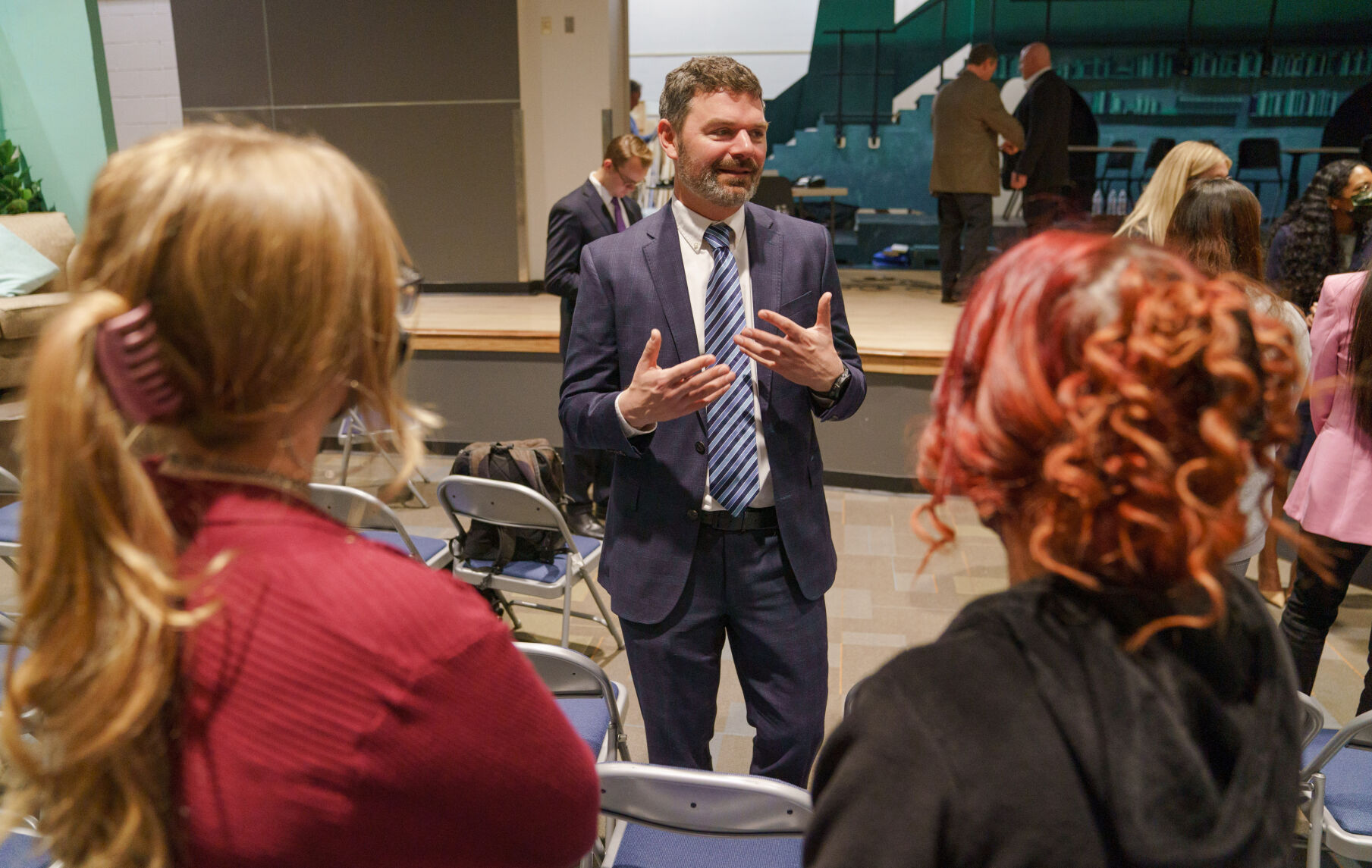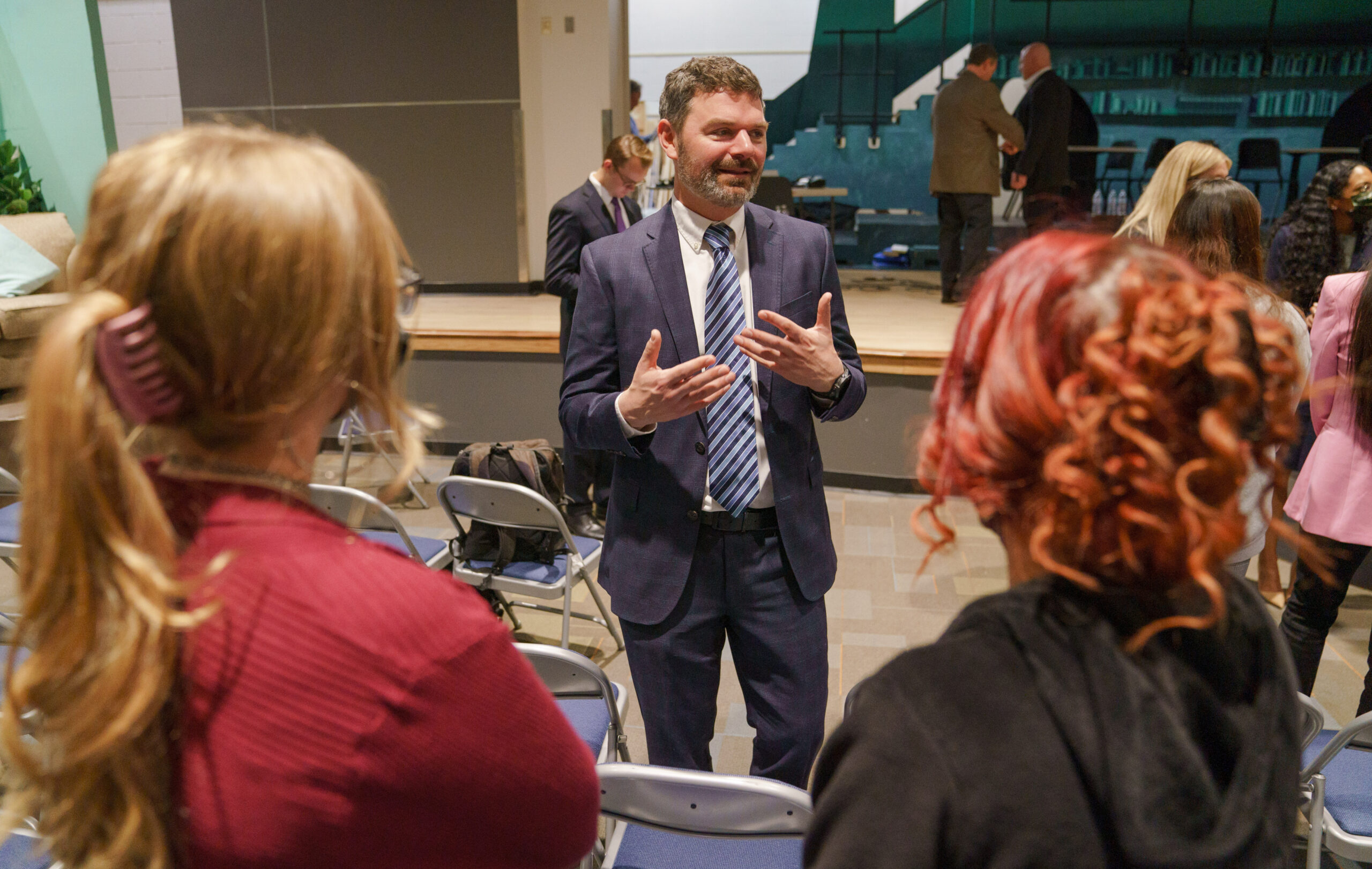Appeals court finds no discrimination in prosecutor’s removal of Asian juror from murder trial

Even though an Adams County prosecutor misrepresented the law and the facts when she sought to remove the only Asian juror from a murder trial, Colorado’s second-highest court agreed earlier this month that no racial discrimination occurred.
Under longstanding U.S. Supreme Court precedent, intentional race-based discrimination in jury selection is unconstitutional. If a prosecutor tries to dismiss a juror of color, the defendant may raise a “Batson challenge,” named after the Supreme Court’s Batson v. Kentucky decision. Such a challenge forces the prosecutor to justify the removal, or strike, with a “race-neutral” reason.
In 2021, jurors convicted Steve Daniel Young for the murder of John Cyprian in Aurora.
During jury selection, the prosecution attempted to strike an Asian woman who was also the only juror of color. Although the prosecution told the juror she gave “a great answer” in response to questioning, they changed their mind in front of the trial judge – raising concerns that the juror would be “very analytical” and would “not want to see holes” in the government’s case.
A three-judge panel for the Court of Appeals agreed those amounted to race-neutral reasons for the strike.
“These concerns were not irrational,” wrote Judge Matthew D. Grove in the panel’s Nov. 2 opinion.
Case: People v. Young
Decided: November 2, 2023
Jurisdiction: Adams County
Ruling: 3-0
Judges: Matthew D. Grove (author)
Anthony J. Navarro
Katharine E. Lum
Background: In search of fairness: Tug-of-war between jury inclusiveness and juror impartiality reaches Supreme Court
In its 1986 Batson ruling, the Supreme Court disapproved of a prosecutor’s tactic of removing Black members of the jury pool, leaving an all-White jury to convict the Black defendant. Now, when the prosecution attempts to strike a juror of color, a Batson challenge proceeds in three steps.
First, the defendant must state a plausible case that a juror is being removed on account of their race. Second, the prosecution must offer a race-neutral explanation. Finally, the trial judge analyzes whether, more likely than not, discrimination is happening.
At Young’s trial, the Asian juror, identified as J.K., first spoke up to answer the prosecutor’s question of whether she could be fair.
“I guess so. I am actually an analyst myself, so in my job I am required to be pretty impartial,” J.K., who was also deaf, said through an interpreter.
“Great. So you are obviously getting where I am coming from about working with other people, taking information and making a decision,” the prosecutor said. “Do you feel like you are good at doing those things?”
Yes, said J.K. She elaborated that in making her decision, she would listen to both sides, “figure out if there was anything missing” and connect the pieces, seeing if there were any gaps in the case.
“I wouldn’t use my feelings at all. I would just only look at the evidence presented from the prosecution and from the defense,” J.K. said.
“That is a great answer,” the prosecutor responded.
Young’s lawyer followed up with J.K., asking her what evidence she would expect to see in a murder case. Pictures and video, possibly, J.K. answered.
“Something to kind of describe and – to have your team describe, as opposed to the prosecutor’s team – describe what happened because of different perspectives, points of view,” she said.
The prosecution then moved to strike J.K. The Court of Appeals did not name the female prosecutor who initiated the strike, but the 17th Judicial District Attorney’s Office identified the prosecutors to Colorado Politics as Rhoda Pilmer and Christopher Rossi.
Pilmer told District Court Judge Sean Finn that for a Batson challenge, “there has to be a pattern” of strikes against jurors of color – which is not accurate. She then said J.K. was “very analytical, who would hold us obviously to our burden, does not want to see holes, wants to follow chain of custody as evidence is presented.”
Finn allowed the prosecution to strike J.K.
On appeal, Young pointed out Pilmer misstated the law and also misrepresented that J.K. was interested in the “chain of custody” – something J.K. never said. He argued J.K.’s answers accurately described the prosecution’s burden of proof, and said taking issue with her “analytical” approach fed into stereotypes about Asians.
“The prosecutor’s concern was that prospective Juror J.K. would be overly analytical,” responded Assistant Attorney General Grant R. Fevurly, “such that she would hold the prosecution to a higher burden of proof given that she intentionally would look for gaps in the evidence.”
The Court of Appeals panel agreed the prosecution’s justifications were race-neutral and amounted to legitimate concerns about how J.K. would approach the evidence – even if Pilmer’s statements to the judge were faulty.
“Other parts of the prosecutor’s explanation and argument were wrong on the law or the facts,” wrote Grove. “And her assertion that Juror J.K. ‘want(ed) to follow chain of custody as evidence is presented’ appears to have confused Juror J.K.’s … responses with those of another prospective juror.”
The panel also rejected Young’s other claims on appeal. While it was undisputed the prosecution withheld evidence, prompting Finn to impose light sanctions at trial, the panel did not believe the misconduct warranted harsher treatment.
The Court of Appeals also did not address Young’s concern that a juror brought Finn a comic strip about the legal system – an apparent reference to something Finn had said during jury selection. Although Young claimed the gesture showed the juror “did not respect the gravity and seriousness of the proceedings,” the panel noted Young’s attorney had not asked Finn to do anything about it at the time.
The case is People v. Young.













